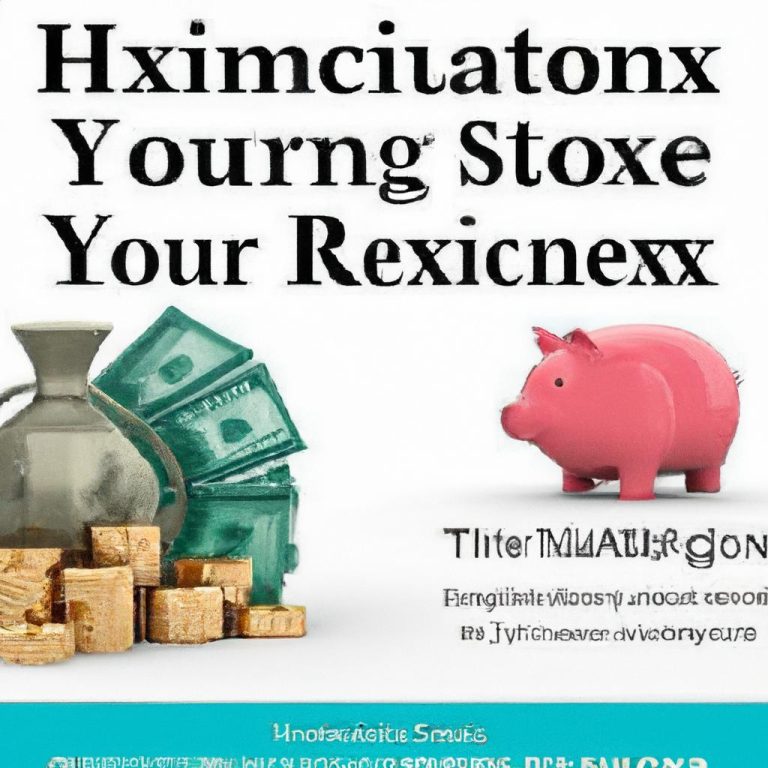Managing an Inheritance: Strategies to Minimize Tax Obligations
Receiving an inheritance can be a significant event that brings both excitement and responsibility. Along with the joy of inheriting wealth, there is the important task of managing it wisely to minimize tax implications. Many individuals often wonder about ways to avoid taxes on inheritance. In this article, we will explore various strategies and tips for reducing tax obligations on inherited assets.
Understanding the Basics of Inheritance Tax
Before delving into strategies to minimize taxes on inheritance, it is essential to grasp the fundamentals of how inheritance tax operates. In most countries, such as the United States, there is a tax levied on the transfer of wealth from one generation to the next. This tax is calculated based on the total value of the assets received and can vary depending on the relationship between the deceased and the beneficiary.
In the US, inheritance tax is primarily imposed at the federal level, with some states also having their own estate taxes. The federal government enforces estate taxes on estates valued above a specific threshold, which stood at $11.7 million in 2021. Any amount exceeding this threshold is subject to a tax rate that can reach as high as 40%.
Effective Strategies for Minimizing Inheritance Taxes
While completely avoiding taxes on inheritance may be challenging, there are several strategies that can help lessen the tax burden. Here are some effective ways to reduce or defer taxes on inherited wealth:
Utilize the Annual Gift Tax Exclusion: One approach to diminish the value of your estate and lower potential estate taxes is by utilizing the annual gift tax exclusion. In 2021, individuals can gift up to $15,000 per person without triggering gift taxes. By spreading out gifts over multiple years, you can gradually transfer wealth to your heirs without incurring taxes.
Establish Trusts: Trusts serve as powerful estate planning tools that can aid in minimizing estate taxes and safeguarding assets for future generations. By creating irrevocable trusts, you can remove assets from your taxable estate while still maintaining control over their distribution. Trusts also offer creditor protection and ensure assets are passed down according to your preferences.
Donate to Charity: Making charitable donations can not only benefit a worthy cause but also reduce your tax liability. By allocating a portion of your estate to charity, you can decrease the taxable value of your estate and potentially qualify for a charitable deduction on your tax return.
Consider Life Insurance: Life insurance can be a valuable asset for offsetting estate taxes. By designating a beneficiary on a life insurance policy, the death benefit can bypass the probate process and go directly to the beneficiary tax-free. This can provide essential liquidity to cover estate taxes without the need to sell off other assets.
Take Advantage of Step-Up in Basis: When inheriting assets, they are typically valued at their fair market value at the time of the decedent’s death. This implies that any appreciation in the assets’ value before your inheritance is not subject to capital gains tax. By holding onto inherited assets and selling them later, you can leverage the step-up in basis to minimize capital gains taxes.
Conclusion: Navigating Inheritance Tax Efficiently
Inheriting wealth presents both opportunities and challenges, including potential tax obligations. By gaining a solid understanding of inheritance tax fundamentals and implementing effective strategies to minimize taxes, you can preserve a larger portion of your inheritance for future generations. It is advisable to seek guidance from a financial advisor or estate planning attorney to tailor a plan that aligns with your objectives.
By taking proactive measures to manage your inheritance prudently, you can optimize your newfound wealth and establish a lasting legacy for your loved ones. Through careful planning and strategic decision-making, you can navigate the complexities of inheritance tax and ensure that your assets are passed down in the most tax-efficient manner possible.
Maximize Your Inheritance: Effective Strategies to Avoid Taxes and Preserve Your Wealth
When it comes to inheriting assets from a loved one, it can be a bittersweet experience. While you are grateful for the financial stability it may provide, you also want to ensure that you are not losing a significant portion of it to taxes. Fortunately, there are several effective strategies you can implement to avoid excessive taxation and preserve as much of your inheritance as possible. In this article, we will explore some key strategies and tips to help you maximize your inheritance and protect your wealth.
Benefits of Maximizing Your Inheritance
Maximizing your inheritance is crucial for various reasons, including:
- Preserving your wealth for future generations
- Minimizing tax implications
- Ensuring financial security for yourself and your family
Effective Strategies to Avoid Taxes and Preserve Your Wealth
1. Utilize Estate Planning Tools
One of the most effective ways to minimize taxes on your inheritance is through proper estate planning. Consider utilizing tools such as:
- Trusts: Establishing a trust can help reduce estate taxes and protect your assets from creditors.
- Gifts: Giving gifts during your lifetime can help reduce the size of your estate and lower potential estate taxes.
- Life Insurance: Life insurance can provide tax-free proceeds to your beneficiaries, helping to supplement their inheritance.
2. Take Advantage of Tax Breaks and Exemptions
Be aware of tax breaks and exemptions that may apply to your inheritance, such as:
- Gift Tax Exclusion: As of 2021, you can gift up to $15,000 per person per year without incurring gift tax.
- Step-Up in Basis: When inheriting assets, the cost basis is adjusted to the fair market value at the time of the benefactor’s death, potentially reducing capital gains tax.
- Charitable Deductions: Donating a portion of your inheritance to charity can provide tax benefits for both you and the charity.
3. Seek Professional Guidance
Consulting with a financial advisor or estate planning attorney can help you navigate the complexities of estate taxes and inheritance laws. They can provide personalized advice and strategies tailored to your specific situation, ensuring that you preserve as much of your wealth as possible.
Practical Tips for Maximizing Your Inheritance
In addition to the strategies mentioned above, here are some practical tips to help you maximize your inheritance:
- Keep detailed records of all assets and liabilities to facilitate the inheritance process.
- Communicate openly with family members about your inheritance plans to avoid conflicts and misunderstandings.
- Regularly review and update your estate plan to reflect any changes in your financial situation or family dynamics.
Case Studies
Here are two real-life case studies that illustrate the importance of effective inheritance planning:
Case Study 1: The Smith Family
| Name | Inheritance | Taxes Paid |
|---|---|---|
| John Smith | $1,000,000 | $200,000 |
| Sarah Smith | $1,000,000 | $0 |
In this case, Sarah Smith consulted with an estate planning attorney and established a trust to minimize taxes on her inheritance, while John Smith did not take any proactive measures.
Case Study 2: The Johnson Family
| Name | Inheritance | Taxes Paid |
|---|---|---|
| Michael Johnson | $500,000 | $100,000 |
| Emily Johnson | $500,000 | $50,000 |
Emily Johnson took advantage of the step-up in basis for inherited assets, reducing her capital gains tax liability compared to her brother, Michael Johnson.
By implementing these strategies and tips, you can effectively minimize taxes on your inheritance and preserve your wealth for generations. Remember to consult with professionals and stay informed about current tax laws to maximize your inheritance.
The post Maximize Your Inheritance: Effective Strategies to Avoid Taxes and Preserve Your Wealth appeared first on lawyer.bet.




